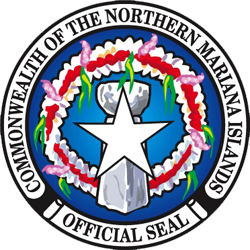Scammers Take Advantage of Health Care Reform Confusion
State Insurance Regulators Warn Consumers to Be On Alert
Since the Affordable Care Act (ACA) was signed into law in March 2010, unscrupulous scammers have been creating ways to take advantage of consumers’ uncertainty surrounding the law. Posing as insurance agents or representatives of the federal government, these scam artists try to sell fraudulent policies or obtain sensitive information like Social Security and bank account numbers. The National Association of Insurance Commissioners (NAIC) and state insurance regulators are warning consumers about common red flags and providing tips on how to avoid being the victim of a scam.
Health Insurance Marketplaces
One of the largest components of the ACA is the creation of new health insurance marketplaces, or exchanges. These online portals ask consumers to enter information about themselves and select the level of coverage they desire to receive a list of plans they can purchase. Each state had the option of running its own exchange, partnering with the federal government or having the federal government run its exchange entirely.
Be aware that the CNMI does NOT have an exchange or insurance marketplace at all. If someone tries to contact you regarding a “CNMI exchange” please report this to the CNMI CAP (Consumer Assistance Program) office.
Open enrollment in the new marketplaces begins October 1 in the mainland U.S. However, bogus websites that purport to be part of the exchanges have been appearing online for more than a year. Do not enter any personal or financial information into a website that says you can purchase a policy from an exchange in the U.S.
New “Obamacare” Insurance or Medicare Cards
Another common ploy involves unsolicited calls from scammers who claim to have your new “Obamacare” insurance card – they just need to get some information before they can send it to you. The caller then asks for credit card numbers, bank account information or your Social Security number. A variation of this trick specifically targets seniors on Medicare; the caller claims that in order for them to get their new Medicare card and continue receiving their benefits, they must verify their bank account and routing numbers. Some callers ask for their Medicare numbers, which are identical to Social Security numbers.
You are not required to obtain a new insurance or Medicare card under the ACA. Also, anyone who is a legitimate representative of the federal government will already have your personal and financial information and should not ask you to provide it.
Don’t Be Misled
Here are some other important “red flags” to watch out for:
• The salesperson says the premium offer is only good for a limited time.
Enrollment in the exchanges will be open from Oct. 1 to March 31, and rates for plans in the exchanges will have been approved for the entire enrollment period. Be skeptical of someone who is trying to pressure you into buying a policy because the rate is only good for a short time. Remember: if the offer sounds too good to be true, it probably is.
• The salesperson says you could go to jail for not having health insurance.
Starting in 2014, all Americans will be required to have health insurance, however, the CNMI is exempt from this provision. CNMI residents face no penalty for being uninsured.
• You receive an unsolicited phone call or email from someone trying to sell insurance.
The federal government and state insurance departments will not be contacting individual consumers to sell them insurance. Do not give any sensitive information to anyone who claims to be with the federal government, your state insurance department or a navigator for your state’s exchange.
Protect Yourself
The best way to protect yourself from insurance fraud is to research the agent and company you’re considering. Always STOP before writing a check, signing a contract or giving out personal information. CALL the CNMI CAP office (785-8890) and CONFIRM that the agent and company are licensed to write insurance in your state.
More Information
The above information is from an alert issued by the National Association of Insurance Commissioners (NAIC). For more information on the NAIC’s activity on healthcare reform, visit the Healthcare Reform Special Section. You can find more information on the ACA on the HHS website.



